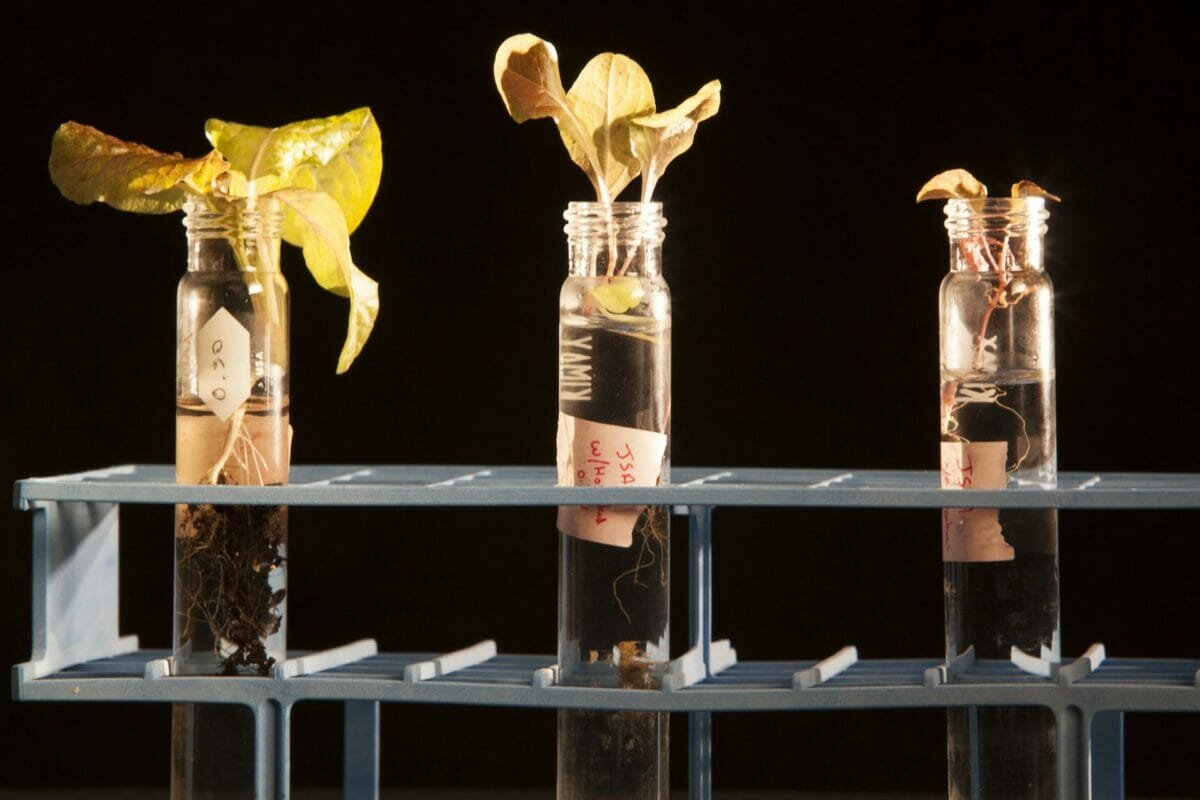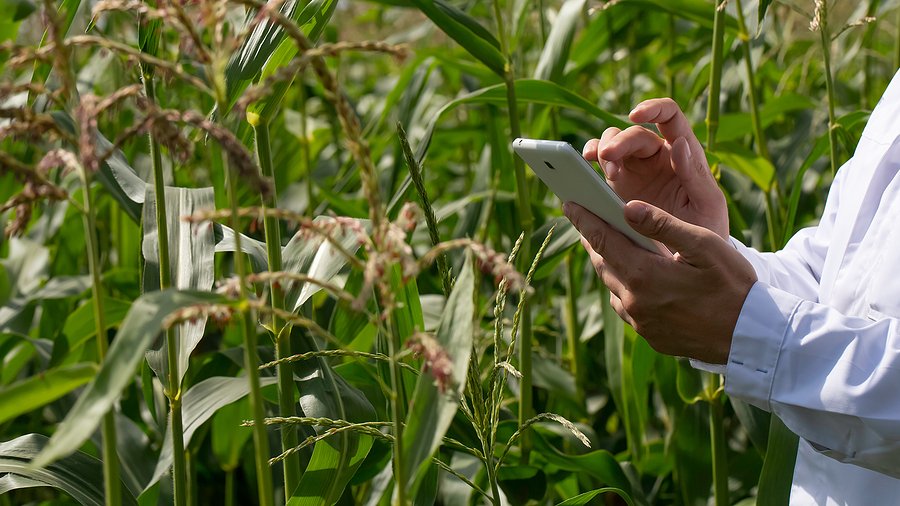As the worldwide quantity of arable land gradually reduces, some researchers and business owners are aiming to the stars as the next terrific agrarian frontier. A principle as old as the very first sci-fi story, humankind’s escape to a life in area depends upon the capability to produce edible and healthy food.
Growing plants in area is not a brand-new experiment. Astronauts and researchers have actually currently had success cultivating vegetables and fruits in area, such as ‘ Armara’ mustard and pak choi Last fall, 7 fully grown Hatch green chiles were gathered Talking to the future of high-end area travel, a lots bottles of Bordeaux were sent out to age in area for 14 months prior to going back to be offered in a Christie’s auction.
A cacophony of current occasions has actually even more moved the interest- and financial investment- in growing food in absolutely no gravity, consisting of a decline in arable land, the failure of crops on land due to severe temperature level and weather condition occasions and the growing possibility of human-guided journeys to neighboring worlds in the planetary system.
Now, a variety of various business are stepping up, wanting to lead the food production market up the runway to area.

Samples of plant development in NASA’s Martian Garden. Picture thanks to NASA/Dimitri Gerondidakis.
Stabilizing terrestrial food production
Orbital Farm is one business aiming to the future. Still in a fledgling state, Orbital Farm wants to change terrestrial food production into a sustainable closed-loop system, making the ultimate leap to space-grown produce a simple barrier to conquer. CEO and creator Scot Bryson states that his business was substantiated of the desire “to take on environment modification.” And this makes good sense. As environment modification advances, weather condition patterns will end up being more unforeseeable and irregular, putting crops all over the world in threat. These effects will just heighten, states Bryson, due to the truth that almost 26 percent of greenhouse gas emissions are launched by the farming sector alone.
To fight this result, Bryson is aiming to open entirely closed-loop farms or self-contained greenhouses that transform waste product into energy. The business visualizes this including fresh fruits and veggies however likewise tidy energy, fish, biopolymers, medications, vaccines and cellular farming.
Starting with a center at the Virgin Galactic Spaceport America in New Mexico, Orbital Farm will work to incorporate the mechanizations of commercial, massive farming within a sustainable system. This consists of mimicing the environment to imitate area conditions, consisting of restricted access to freshwater and oxygen, in addition to structure and continually screening air carbon capture systems. Bryson states this is the only method forward, since “fifteen, twenty years from now, when we have great deals of individuals living … on Mars, you require massive systems to support life.”
Because vein, chickpeas are currently starting their screening trial in area. An experiment called “Area Hummus” begun with Northrop Grumman’s 17th supply objective to the International Spaceport Station (ISS) on February 19. Yonatan Weintraub of Stanford University, the researcher who established the prepare for Area Hummus, mentions the nutrient- and protein-dense nature of the bean as a prominent aspect to explore its capacity for development in area. Housed in a mini greenhouse, chickpea development will be kept track of by researchers aboard the ISS.

Cosmonaut Oleg Kononenko on board of the International Spaceport Station throughout the very first try out a 3D bioprinter. Picture thanks to Aleph Farms.
Zero-gravity cell-cultivated meat
Pull Back in the world, Aleph Farms, based in Rehovot, Israel, is likewise banking on food grown and prepared amongst the stars, however not simply plant life. Popular for cultivating the very first piece of meat in area, Aleph Farms has out-of-this-world prepare for future proteins. Zvika Tamari, head of the business’s area research study program, thinks that cell-cultivated meat will end up being an important element of long-duration objectives to Mars and prospective Moon stations. “Providing fresh food from Earth to the Moon and Mars … is simply not going to take place,” states Tamari. So Aleph Farms is figured out to make cultivating and preparing meat in area a possible truth for the future of area travel.
In lieu of trying to blast a cow to the moon, Tamari states that Aleph Farms is operating in collaboration with the ISS to “take a look at the result of microgravity on … cell expansion and distinction.” Cell expansion and distinction serve as the structure for all muscle tissue development, so comprehending the effect that an absence of gravity has on these 2 procedures is important to stabilizing the practice of meat grown in area. While the astronauts on the ISS carry out these experiments, experts will keep track of the development from Earth, responding and modifying theory and practices in genuine time. All of this is to state that the future of growing meat in area for long-lasting objectives is no longer an idea managed to our preferred episodes of Star Trek however rather a genuine practicality getting steam and traction.
[RELATED: What Would It Take to Feed One Million People on Mars?]
Furthermore, Tamari briefly discuss the mental effect of long-duration area travel, raising the concept that astronauts checking out Mars will go through years in area and might eventually never ever go back to Earth. Acknowledging this psychologically and mentally draining pipes possibility, he presumes that “the capability to be associated with preparing your own [food] and growing it and seasoning it by your taste … is incredibly essential for the wellness of astronauts.”
NASA appears to concur with Tamari’s take. Seclusion and confinement are ranked 2nd amongst NASA’s list of 5 threats of human spaceflight, with the firm acknowledging that a absence of access to constant fresh food might contribute to “mental or physical imbalance.” So the marketplace for innovation that can supply fresh and delicious food in area is more crucial than ever.
A brand-new Area Race
Aleph Farms and Orbital Farm both concur that the more varied a set of minds pursuing growing food in area, the most likely it is that humankind will have the ability to fix pushing food-related problems- both on the ground and in area. Food security and diminishing resources, both sped up by the environment crisis, are posturing difficulties for the future of food production. Lots of think that to grow food effectively in area, humankind needs to at the same time comprehend the practice of sustainable food production in the world.
To this end, NASA and the Canadian Area Firm just recently revealed the 2nd leg of the Deep Area Food Difficulty, a competitors with a $1-million dollar reward that looks for sustainable food innovation for usage in both terrestrial and inter-planetary settings. Boasting the tagline “Great food for much healthier, better human beings in area and in the world,” NASA is tough groups from all over the world to send innovative concepts that might sustain long-duration area objectives and enhance the ecological effect of food production in the world, increasing access to sustainable food. Stage 1 winners consist of concepts such as Bistromathic from Austin, Texas, a prospective technological alternative that “guarantees astronauts delight in an Earth-like experience of consuming throughout long area objectives,” or SIRONA NOMs from Golden, Colorado, a “small bioregenerative system that grows a range of fruits, veggies, herbs and fish.”
Progressing, we can anticipate to see ingenious innovations that will introduce the next 50 years of sustainable food production in area and in your home. Professionals from around the world are checking out brand-new and interesting techniques to grow numerous food choices in any environment. Nevertheless, the future of intergalactic food is totally based on Earth in today day: Humankind requires to comprehend how to grow more with less. Just upon mastering this dilemma can we anticipate to check out the Galaxy while taking pleasure in a kale salad and beef tartare.













